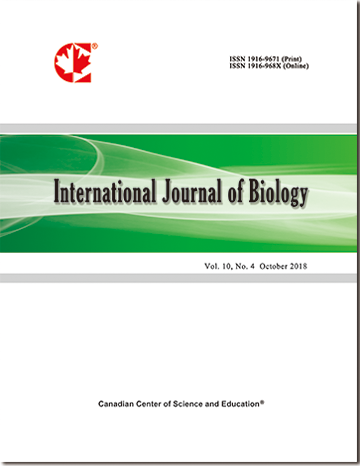Variation on Male Mating Success to Short-Term High Thermal Stress among Three Geographical Strains of Drosophila melanogaster
- Banu ÖNDER
Abstract
The effect of high temperature stress on mating success is investigated in three natural populations of Drosophilamelanogaster from different geographical origins. In this experiment, the males of the control group were continuously
kept at 25°C while the males of the second and third groups were kept at 36°C and 38.5°C respectively for 1 h before
mating to evaluate the male mating success. One group of males exposed to short-term high thermal stress were
immediately put into the vials to mate with females, while males of the second group were kept in the vials for a
relaxation period for 1 h before mating. I found that mating success which was measured as the number of offsprings
was higher in the group which was mated immediately after short-term high thermal stress. Also it is seen that the
individuals exposed to 38.5oC were much more successful than the individuals which were kept at 25oC. There is also
some variation between the populations of different origins as a respond to thermal stress. This results show us that
genotype environment interaction is higher for male mating success and the relaxation period after short-term thermal
stress has a negative effect on male mating success.
- Full Text:
 PDF
PDF
- DOI:10.5539/ijb.v1n1p45
Index
- ACNP
- AGRICOLA
- BASE (Bielefeld Academic Search Engine)
- CAB Abstracts
- CiteFactor
- CNKI Scholar
- CrossRef
- DTU Library
- Elektronische Zeitschriftenbibliothek (EZB)
- Excellence in Research for Australia (ERA)
- Google Scholar
- Infotrieve
- LIVIVO (ZB MED)
- LOCKSS
- Max Planck Institutes
- MIAR
- PKP Open Archives Harvester
- Qualis/CAPES
- ResearchGate
- ROAD
- SafetyLit
- SHERPA/RoMEO
- Technische Informationsbibliothek (TIB)
- Universe Digital Library
- WorldCat
Contact
- Ryan JonesEditorial Assistant
- ijb@ccsenet.org
